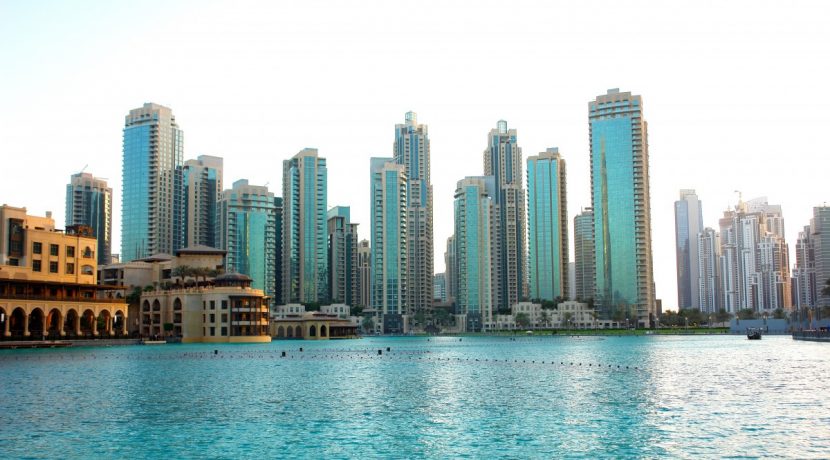Alliances are the flavour in Dubai’s property market
A fully paid for plot of land is a good bargaining chip to have in Dubai these days … as some investor-developers are finding out.
These assets are being used by them to go in for alliances with other developers to launch projects, preferably in the shortest possible time. The new partner(s) will bring in the funds needed to develop the project while the other’s role is limited to providing the land.
On completion, the partner who brought in the funds will have the rights for a percentage of the units and which can be sold at his discretion.
Such “joint development agreements” (JDAs) are again becoming popular in Dubai’s real estate landscape as developers try to rush through with new project launches and mop up as many buyers as is possible.
Developers are veering towards the idea that delaying launches may not be in their best interests as Dubai’s freehold market has already seen significant new supply coming out in 2017.
For the partners in such alliances, the deals could be a win-win for them. For the developer with the land, and paid for at that, he does not have to concern himself with raising new capital to start construction. That would be taken up by the partner, who on his part need not bother about spending tens of millions of dirhams on acquiring the land.
Such projects have been launched at Dubai Silicon Oasis, Jumeirah Village, as well as in the Arjan and Liwan clusters, market sources say.
“Although hard data is difficult to ascertain, anecdotal evidence suggests that in recent months more than 100 such JDAs have been signed for projects in the city,” said Sameer Lakhani, Managing Director at the consultancy Global Capital Partners. “We are seeing it all over the place, with ticket sizes from as low as Dh50 million to as much as Dh500 million (the latter being on account of reviving staled projects as well).
“Investors who had ploughed their funds into land as well as smaller developers find that the only way for survival is for them to come together. This is the trend that is now happening at an accelerated pace.”
Consistent
For smaller developers, raising funds from banks and other lenders is starting to tighten up. And even if they do get those funds, it is coming at a higher cost given the interest rate increases and with more to come this year.
There are other more fundamental reasons why joint development agreements could be making sense. In 2017, the Top 5 developers together accounted for 55 per cent of all off-plan transactions in Dubai, according to Reidin-GCP data. This high percentage share for master-developers has remained consistent over the last three to four years.
The net result is that the rest of the developers will have to fight over every buyer coming their way.
“Funds from off-plan sales for the small private developers will become less reliable,” said one source.
There is also the impression among developers that the benefits of stretching post-handover payment plans to bump up off-plan launches is flattening out. Also, master-developers are enforcing the terms of their agreements with third-party developers in launching projects. If someone has acquired a plot, that developer is bound to start project-related works within a stipulated time.
“With newer areas and other emirates opening up in the freehold space (such as in Sharjah), developers in Dubai with existing land ownership have been forced to compete with a new breed of developers who have been acquiring land at more favourable terms and/or prices,” said Lakhani. “It has been due to this that JDAs have accelerated in number.”
Developers seek synergies in a rapidly shifting marketplace
The partnership struck by the real estate behemoths Emaar and Aldar will make consolidation a key theme of the UAE’s property market this year. This is just as valid for the mid-sized and smaller developers out there.
“In Abu Dhabi, developers who have more than 10 projects account for 44 per cent of units, whereas in Dubai they account for 56 per cent,” says a new report from Reidin-GCP. “This concentration is expected to increase, especially as the number of developers continues to fall as smaller players coalesce.
“There were 1,200 registered developers in Dubai. Data suggests that this number is considerably lower as one developer may use various “special purpose vehicles” for different projects. The number of active unique developers is closer to 400, which we expect will reduce further.”
Interestingly, “joint development agreements” were quite the thing between 2010012, whereby developers with stalled projects entered into deals with contractors to complete them. The contractors would accept equity stakes in the project in lieu of project work related payments. During this cycle, ticket sizes of the JDAs were between Dh100 million and Dh250 million.
All rights reserved to the initial publisher for Gulf News
Collected and published by Arms &McGregor International Realty® editorial team. Get in touch with us at [email protected]

